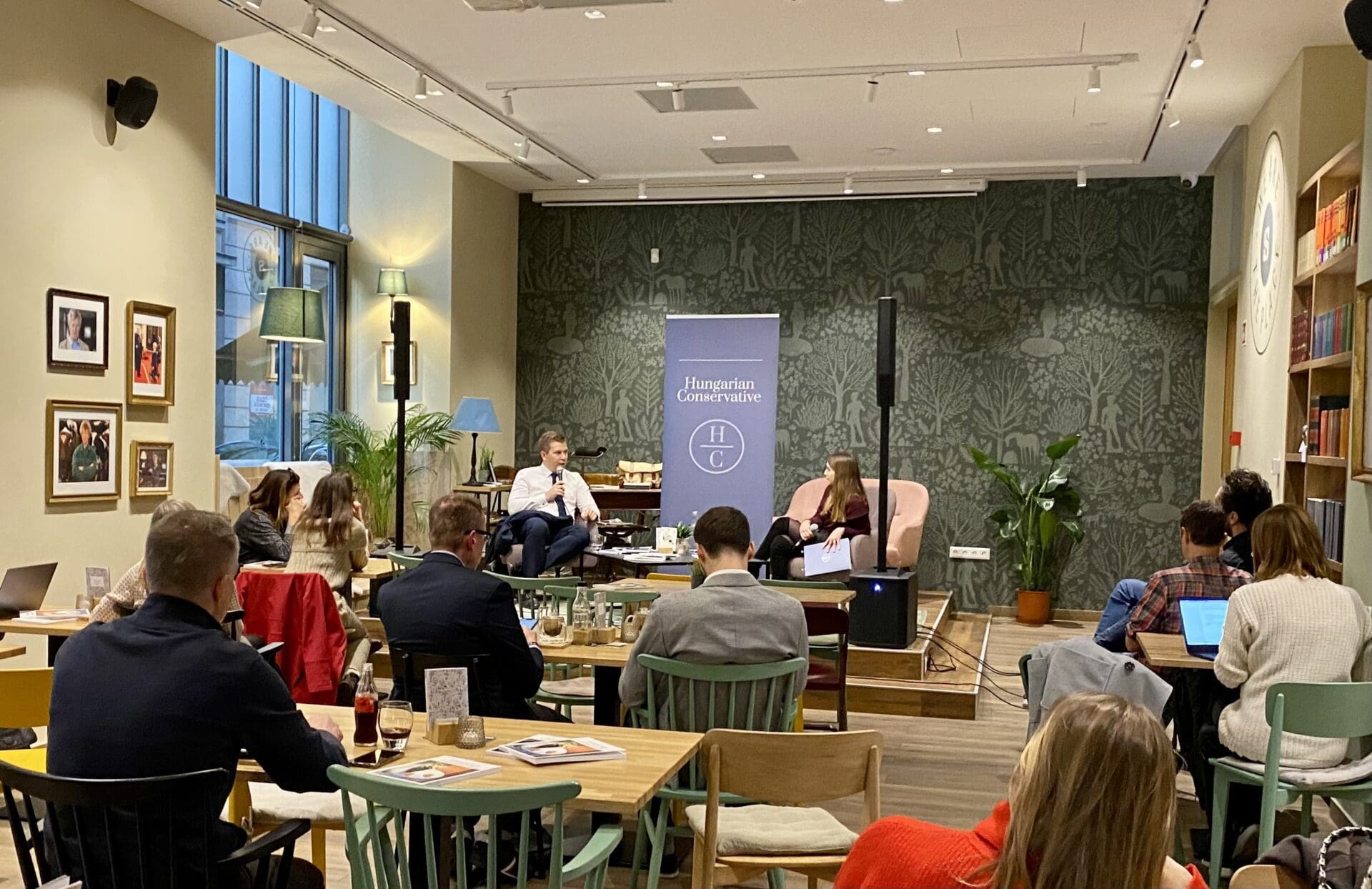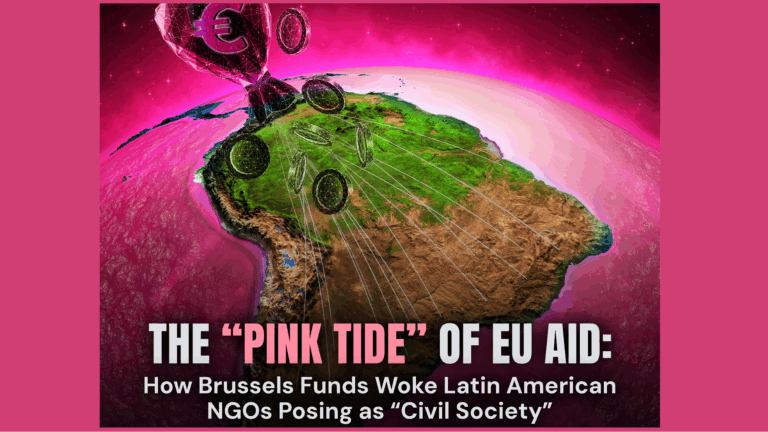The Hungarian Conservative event featuring Anton Bendarzsevszkij, director of research at the Oeconomus Economic Research Foundation was held at the Scruton V.P. café in Budapest on Monday, 26 September. Although it was a rather cold night, seats were filled, and the guests eagerly awaited the start of the conversation. The conversation was conducted in Hungarian, and was moderated by Hungarian Conservative’s online editor, Zsófia Tóth-Bíró. What follows is the first part of our redacted version of the discussion.
As the war rages on, how many Hungarians remained in Ukraine or in Subcarpathia, and what should they expect in the future?
We currently do not have exact numbers on how many of them remained in the area, and I do not expect that we will have them in the near future. The main issue is that in Subcarpathia, the last census was held in 2001. Ever since, the Ukrainian government has been planning to hold one, however, they never got around to it. On the issue of what they can expect, the important fact to note is that they are also affected by the recent mobilisation announced by the Russian president. A mobilisation during wartime is made up of four different waves. The first wave included people who have acquired combat experience after 2014. The second one affected people who had been soldiers before. They do not necessarily possess any combat experience but who do have served in the military. The third wave would draft those who are between the ages of 18 and 60, while the fourth would include just about anyone who is able to pick up a weapon. We can speculate that Ukraine is currently in the second wave of the mobilisation efforts. While there have been rumours that university students will be recruited soon as well, this has not happened yet. The situation is the same in Subcarpathia. As the mobilisation and the war continue, more and more Hungarian casualties are reported. Most of the victims are from among those who are fighting in the 128th squadron. The numbers as to who remained and who fled are rather hard to pinpoint, since inner migration plays a huge role in the number of those who reside in the area. Men between the ages of 18 and 60 are not allowed to leave the country anymore. Many fled from Ukraine into areas of Subcarpathia in the western and south-western areas, where they attempt to hide while they wait for the end of the war. So to conclude, and answer the question: we do not have exact numbers, and it is very likely that we will not have them any time soon.
There have been reports suggesting that Hungarian people living in Ukraine are being harassed by the residents there. What do we know about this, and what would be the cause?
Sadly, these reports seem to be factual. I would assume that we are only talking about verbal harassment and nothing physical. As for the cause, there are two that we can separate. The first one is that Ukrainians do not think that the Hungarian government is doing enough to support their country—our foreign politics are judged harshly by them, even by President Zelenskyy. He has talked about what he sees as a ‘connection’ between Hungary and Russia. After his remarks, the Ukrainian press also started to attack Hungary. This caused the population to believe the press and start calling Hungarians in the area traitors. As for the last couple of months, this judgement and the attacks seem to have eased off quite a bit. After the Ukrainian application for EU membership was accepted, tensions have lowered. The other source of the attacks would be the Russian influence. They are playing to divide the country along lines of ethnicity. They are agitating already nervous people against the nationalities that live among them. There have been reports about Hungarians living in Ukraine receiving text messages from Ukrainian phone numbers in which they were physically threatened. Later, it was revealed that these numbers were actually originating from Russian sources, in an attemp to generate more hate among the population. These are not new practices by Russia, actually. They have been attempting to incite hatred in the area for the last couple of years.
A number of newspapers reported about Ukrainian arable land being bought by US companies. Is this true, and if so, what would be the reason behind it?
These news are simply not true. They are fake, it is disinformation generated by Russia. They first wrote about it in May, saying that the Ukrainians are selling their land to the US. The news only reached Hungarian and other European press platforms a while later. However, the important fact to focus on is that in 2001, the Ukrainian government introduced a law that prohibited the selling of agricultural lands to foreign investors or companies. After the law was introduced, land could only be sold to Ukrainian nationals. The reason behind the law was that economically Ukraine suffered at the time, but they had agricultural land of unique quality, the so-called chernozyom soil which is the best in the world. Preventing these lands from falling into foreign hands aimed to speed up the improvement of the economy. They originally planned to keep the law in force for two or three years, and abolish it once they are economically stable, however, it kept being extended and never abolished, until last year. Last year president Zelenskyy abolished parts of the law. This still meant that currently only Ukrainian nationals are able to buy land. From 2023, Ukrainian companies will also be permitted, however, there is no talk about foreign buyers or investors. Regardless, it is true that some of the land in the country is owned by foreign, American investors, but they had bought those lands back in the nineties. We are talking about 9 per cent of all arable land in Ukraine.








